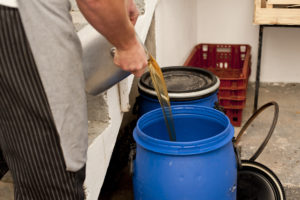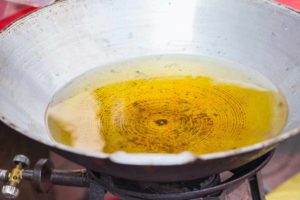You are surely all too aware of the issue of waste oil disposal as a restaurant owner. Perhaps, like countless others, you discover that you must make recurring payments to have your waste oil bins emptied and maintained. You may occasionally be required to make additional payments if your restaurant conducts more business than usual and your bin fills up earlier than expected. Wouldn’t it be good if you could figure out a method to use that waste oil to your advantage rather than having it eat away at your profits all the time?
For those prepared to look outside the box and conduct some research, there are possibilities. You may use the wasted cooking oil to your advantage as well as cut the cost of having waste cooking oils removed from your company. Waste cooking oil that accumulates during regular restaurant operations can be transformed into cash with little research and inventiveness.
It might be simple to fall into the trap of believing that takeaways, greasy spoon cafés, and other establishments offering up deep-fried delicacies are the only ones who should really consider how fats, oils, and grease are disposed of. However, it is obviously not the case. Grease is a fact of life when it comes to handling cooking oils, meat, dairy, salad dressing, dough, and many other items. The majority of eateries, from fast food joints to fine dining establishments, have the capacity to pour copious amounts of fats, oils, and grease down the drains, where they can cause considerable harm.

Various places, such as kitchen appliances, dishwashing stations, floor cleaning, and equipment sanitation, might let oil into a building’s plumbing system. To ensure that your restaurant does not have an adverse effect on the nearby sewerage system, you must conduct yourself as a business owner carefully and honorably. If you don’t, you risk paying a high price, including steep fines from your local water authority and escalating costs brought on by any disturbance to your operation.
When paired with whatever oil or grease they may contain, solids and other undesirables from leftover food can accumulate in your drains over time and eventually cause clogs. To prevent them from entering the drains in the first place is the trick. Solids are the most straightforward component to handle in the complete oil disposal control procedure. Make sure the crew is aware that all food leftovers must be placed in designated bins. Anything that has been washed needs to be carefully scraped before it enters the pot wash or dishwashing station. This includes anything that has been left on plates, but also pans, platters, and utensils. Before running anything under the tap, make sure to quickly wipe it down with a paper towel.
Better yet, you may make every effort to reduce food waste in your company by leveraging the information you have about your routine business operations to avoid, minimize, reuse, and recycle trash when it can be done. The benefits of having such low levels of food waste will go well beyond the water system, increasing the productivity of your business and allowing you to use the environment a little more sparingly.
It might be difficult to know how to properly dispose of fats, oils, and grease at your restaurant; in fact, a whole sector of the economy is devoted to assisting companies like yours with this particular issue. Your top goal should be to collect all waste oil into designated containers, such as the liquid left over from fryers and oven trays.
Contact a certified oil collector, like NJ Oil Recyclers, so they can recycle the grease or dispose of it in another manner that is as ecologically friendly as feasible. The oil may frequently be recycled and used to make biodiesel or energy by burning it.
The experts at NJ Oil Recyclers employ a solution that is easy to keep in your kitchen, hygienic, and odor-free, as well as affordable and effective. Any item that is challenging to keep will likely not be maintained, which will result in serious problems in your kitchen. Your business will have downtime as a result, and your workers won’t be able to focus on providing wonderful meals, which is what they do best.
Correctly recycling oil and grease reduces the risk of harming natural resources like soil and water systems by ensuring that these waste products do not reach the environment. Additionally, it is not necessary to rely on the presence of a nearby removal service.

Many refineries and rendering factories will enter into contracts to buy used waste oil straight from the owner of the restaurant. Some even provide cooking oil containers for the company and arrange on-site waste oil pickup. Eliminating the middleman also gives the restaurant owner a chance to get a greater price for his used cooking oil.
Here are the main justifications for observing the correct restaurant cooking oil disposal practices. Your commercial kitchen will operate more smoothly and efficiently. Operating your restaurant on a daily basis has fewer safety risks. Your company helps to promote more environmentally friendly business practices. Employee involvement over the long run can rise. The proper disposal of cooking oil might even lead to improved working conditions and food quality in the restaurant.
For the collection and disposal of their used cooking oil, cooking oil disposal companies typically impose a predetermined fee. The restaurant is also liable for the costs associated with maintaining and storing the oil as well as the time spent by employees. It could be pricey for restaurants.
Cooking oil recycling is therefore the most economical choice because there are no costs involved in the process; all you need to do is store the used oil in containers provided by the recycling companies. The recycling businesses will transport old oil to your place for free collection and recycling. There are many benefits to discarding cooking oil the appropriate way. To have used cooking oil removed from your restaurant, be sure to call NJ Oil Recyclers.



